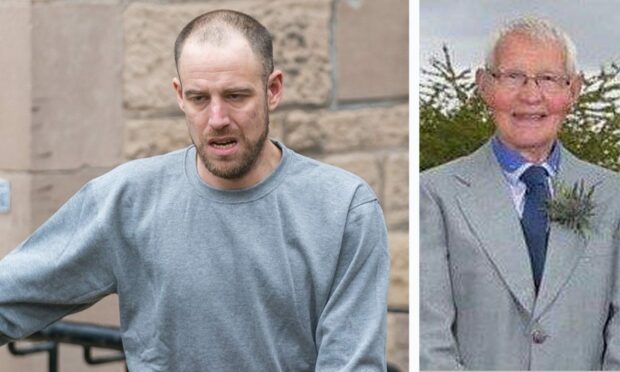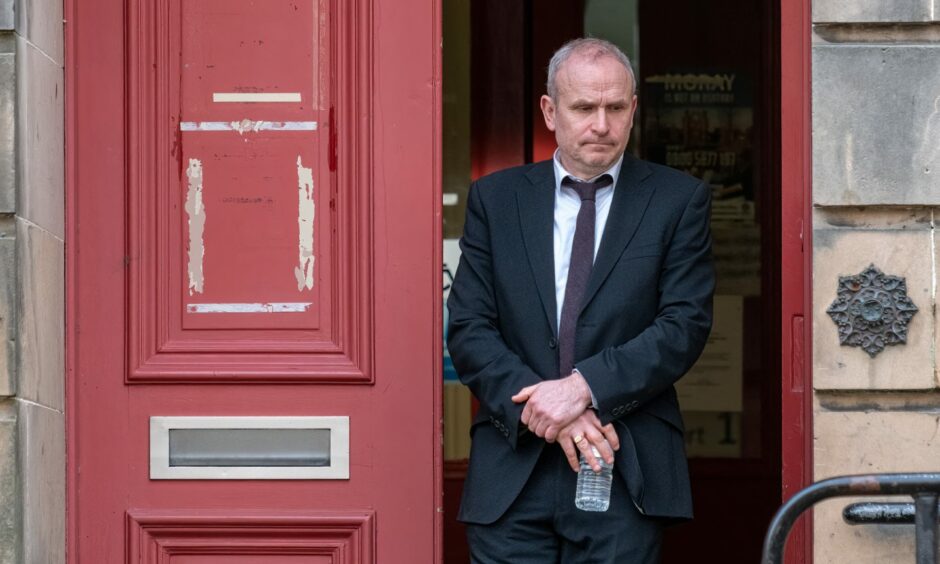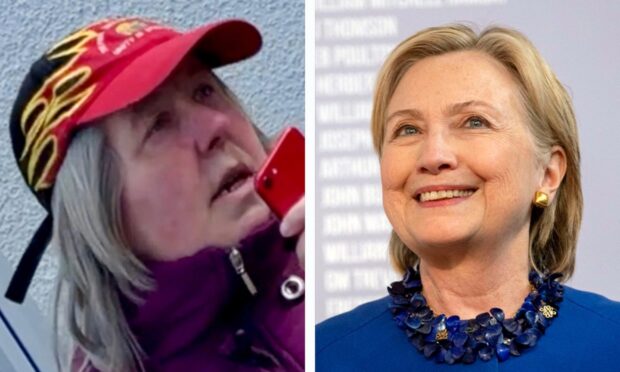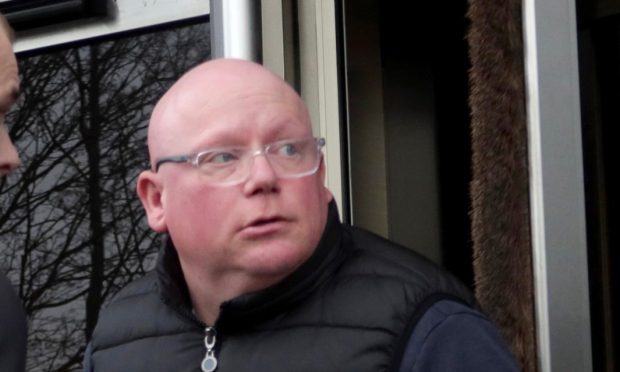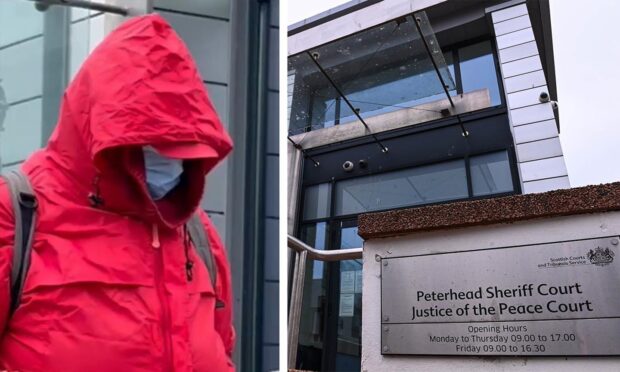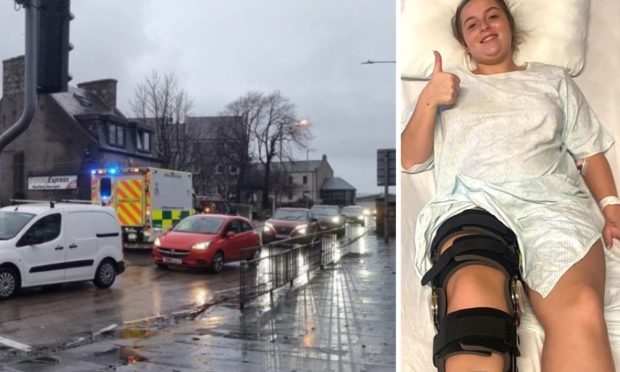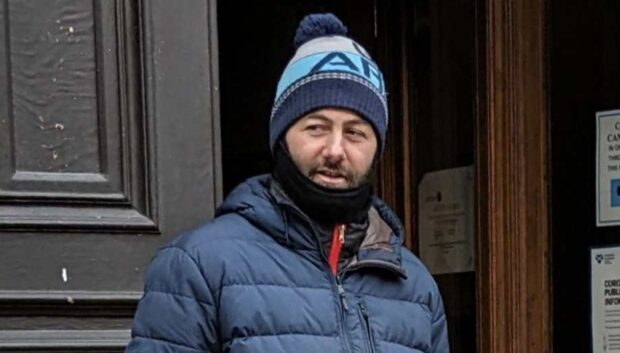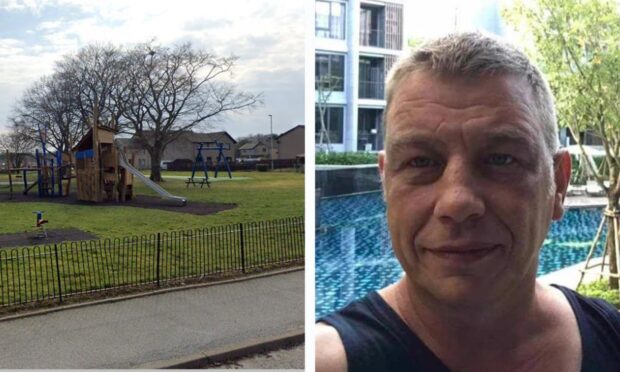A psychotic man who killed a dog walker in Moray woods did not receive any mental health treatment in the months before the attacks despite concerns being raised to doctors about his behaviour, an inquiry has heard.
David Johnstone was 36 when he killed 83-year-old Frank Kinnis and attacked two other pensioners during the incident in October 2019.
Four months earlier, he’d been visited by his GP after his father raised concerns about his mental health and Mr Johnstone had agreed to engage with psychiatric services.
However once a letter inviting him to attend an appointment with a specialist went unanswered, no further care was given.
Mr Johnstone was later charged with murdering Mr Kinnis at Linkwood Farm, Barmuckity, Elgin, on October 21. He was also charged with attempting to murder Morris and Janette Smith, both 70, on the same day at Birkenhill Woods, Elgin.
Inquiry being held into his care
Mr Johnstone was acquitted of murdering the pensioner in July 2020 after pleading not guilty on the grounds of a mental disorder that meant he was unable to appreciate the nature or wrongfulness of his actions.
The Crown accepted that plea and in October a judge ruled that Mr Johnstone be detained at the State Hospital at Carstairs for an “unlimited” period of time in order to protect the public.
Now a fatal accident inquiry is investigating the mental health response to Mr Johnstone during a two-day hearing at Elgin Sheriff Court.
GP Dr Kerry Cattanach told the inquiry she visited Mr Johnstone at home after his family called her practice with concerns regarding his mental health.
After her two-hour house call, on June 25 2019, she “urgently” referred Mr Johnstone to a specialist psychiatrist.
She described his psychotic symptoms as “severe” but deemed she had no immediate concern for his safety, or that of others, so further intervention was unwarranted.
Dr Cattanach told the inquiry: “His father had been in contact the day before with concerns about his mental health in particular with having delusions around energy.”
She added: “My impression after having spoken with Mr Johnstone over a long period of time was that he was suffering from psychotic-type symptoms and had a schizophrenic-type illness. I said he needed an urgent referral.”
He was sharing concerns about “computers, electricity and sunlight”, she said, however presented as “calm and coherent” and was not reporting any hallucinations.
Mr Johnstone did not, in her opinion, meet the criteria for being detained under the Mental Health Act as he “did not pose a risk to himself or others”.
Further insight into Mr Johnstone’s illness and mental state was shared through the disclosure of his GP’s medical notes to the inquiry.
The inquiry heard how Mr Johnstone and his father were documented as saying his mental health had worsened in the three years prior to the fatal incident despite “looking up” in the weeks before the doctor’s home visit.
‘Don’t you know I am God?’
Notes also disclosed how Mr Johnstone’s brother raised concerns, telling medical professionals on one occasion how his sibling told his father: “Don’t you know I am God?”
Dr Cattanach said Mr Johnstone’s care was transferred to the secondary care team as soon as her referral was made – but she remained concerned enough to write to him when he missed his appointment with a consultant psychiatrist to remind him that her door was open, too.
Consultant psychiatrist Dr Bruce Davidson, who Mr Johnstone failed to meet on July 1 2019 as planned, told the court that sometimes mental health “peaks and flows”.
Doctor’s notes – which were not provided to the Dr Gray’s Hospital consultant – made reference to Johnstone’s 20-year daily cannabis smoking habit, a regular alcohol intake and the fact he had been signed off his work as a project design engineer in May 2019.
Dr Davidson said Mr Johnstone’s referral was “a relatively typical one” stating it was “not unusual” and that he was “very familiar with the reported symptoms”.
He wrote to Mr Johnstone inviting him to attend an assessment but that invitation went unanswered. He didn’t follow up with a house call because Mr Johnstone had made it clear previously that he didn’t want people in his house.
Defending that decision he said there was no reason to think Mr Johnstone wouldn’t engage in his own time and that there was “reassurance” there that there was family involvement and a chance that further concerns would “trigger” secondary care involvement in due course.
That didn’t happen, however, and when the attacks happened four months later Mr Johnstone’s case remained “open” despite him not having been assessed.
‘There was concern about his mental state’
“If people don’t show up to their assessment sometimes you will just close the case,” Dr Davidson said. “But for me, there was concern about his mental state so I wanted to keep it open so he could contact me rather than having to be referred again through a GP.”
Dr Davidson also clarified that he formed his opinion purely on the referral letter he received following the GP’s house visit and without having had access to Mr Johnstone’s medical records or history.
He refuted a suggestion by fiscal depute Lixia Sun that he had placed an “inappropriate onus” on a mentally ill man to take charge of his own care and said there were “no obvious barriers” to prevent him from understanding and attending the requested appointment.
The inquiry, before Sheriff Olga Pasportnikov, continues on Tuesday.
For all the latest court cases in Aberdeen as well as crime and breaking incidents, join our Facebook group.
